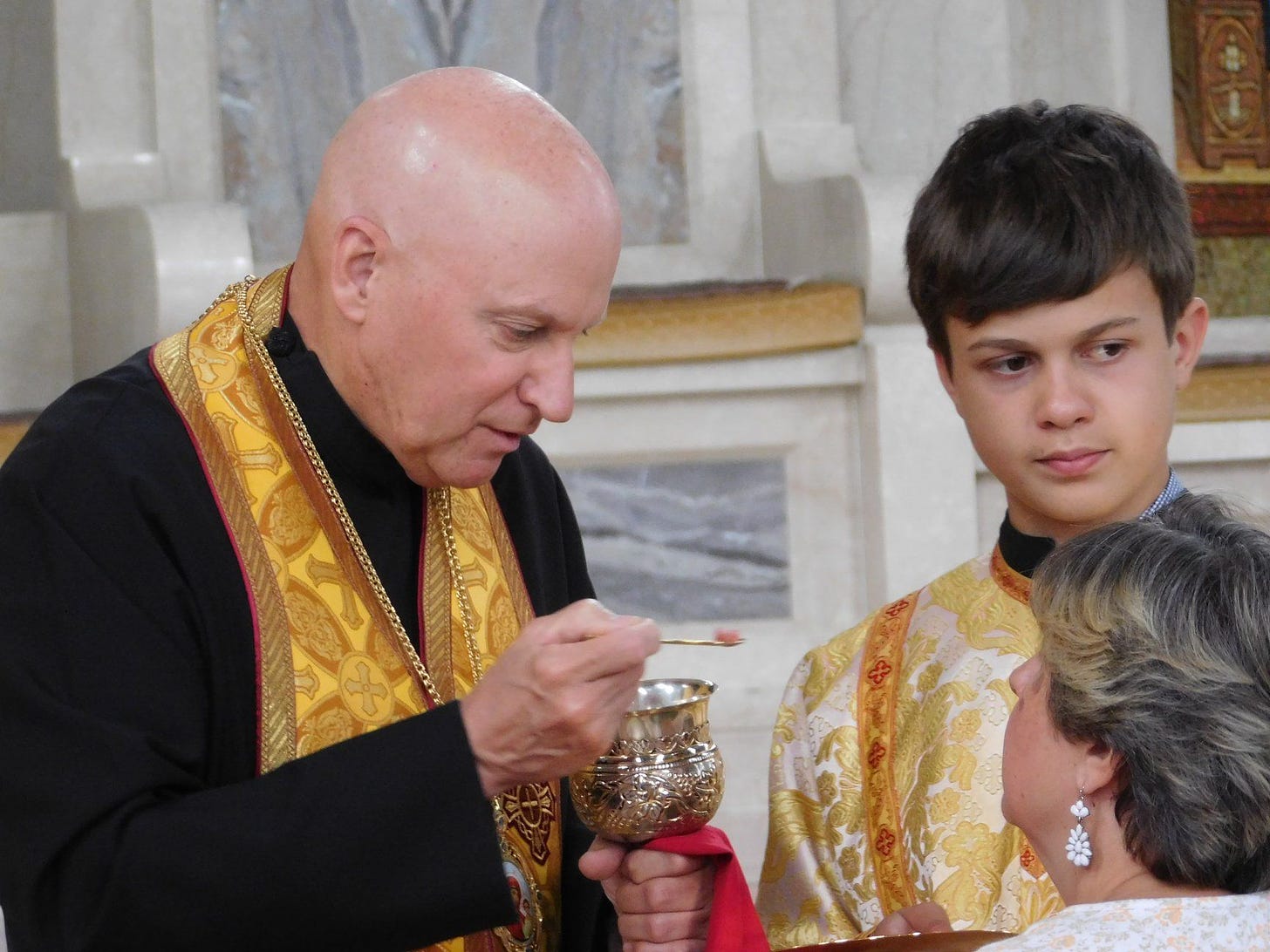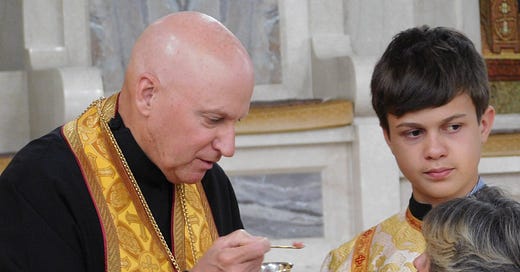
Bishop Kurt’s rising Ruthenian star
After appointments Monday, Bishop Kurt Burnette leads more than half the eparchies of the Ruthenian Catholic Church.

Monday’s appointment of Bishop Kurt Burnette as apostolic administrator of two of the four Ruthenian eparchies in the U.S. signals his expanding role in the Byzantine Catholic Church, an Eastern Catholic Church with some 400,000 members worldwide.
Bishop Kurt - it is common to refer to Ruthenian bishops by their first name - is Bishop of the Ruthenian Eparchy of Passaic, and also apostolic administrator of the Slovakian Apostolic Exarchate of Saints Cyril and Methodius of Toronto.
He was appointed apostolic administrator Jan. 23 of both the Ruthenian Eparchy of the Holy Protection of Mary of Phoenix, and the Ruthenian Eparchy of Parma, leaving the bishop entrusted with the majority of eparchies in the entirety of the Ruthenian Catholic Church.
In the U.S., the only Ruthenian eparchy not now led by Bishop Kurt is the Archeparchy of Pittsburgh, which is headed by Archbishop William Skurla. He also does not lead the Ruthenian Church’s two exarchates in Ukraine and the Czech Republic.
📰
Bishop Kurt’s letter on his Jan. 23 appointments characterized his role as temporary, and quoted heavily from the Pauline epistles.
The Phoenix eparchy has been vacant since August 2021, and led temporarily by Latin Catholic Bishop Thomas Olmsted.
Parma, on the other hand, has been led by Bishop Milan Lach since June 2017.
But Lach was appointed Jan. 23 as an auxiliary bishop of the Slovakian Eparchy of Bratislava - an unusual move for a diocesan bishop, which signals something of the circumstances under which he leaves his Ohio eparchy.
A native of Czechoslovakia and a Jesuit, Lach’s time in Parma was not without tension.
The bishop's plan to close and merge some parishes, in the face of decreasing numbers of Catholics attending Divine Liturgies, met resistance and appeals to the Vatican. In a 2019 letter to the eparchy announcing the possibility of mergers, Lach noted that some 2,000 people were attending liturgies in the eparchy’s 29 parishes.
With an inadequate number of priests to serve the communities of the eparchy, Bishop Milan brought in several priests from Europe to serve in the local Church.
The Parma eparchy was subject to a visitation by the Congregation for Eastern Churches in August 2021; Bishop Milan then met with the prefect of the congregation that November.
In his letter of farewell to the eparchy, Bishop Milan wrote: “I tried to do for you, as for God’s field and God’s building, the best I could. I ask you to always proclaim Christ by your lives and to make an effort to be holy.”
In June 2020, a fellow Slovak Jesuit, Archbishop Cyril Vasil’, was also transferred from his post - secretary of the Congregation for Eastern Churches - to a Slovakian eparchy, in a similarly unusual move.
Lach’s transfer to an eparchy in Slovakia comes amid changing relations between the Ruthenian and Slovak Greek Catholic Churches. Both are heirs to the legacy of the Union of Uzhhorod, a 1646 agreement of a group of Eastern Orthodox priests to join the Catholic Church.
There had recently been talk of uniting Ruthenians and Slovaks under the Eparchy of Mukachevo in Ukraine. And in March 2022 the Slovak jurisdiction in Canada was reduced from an eparchy to an exarchate, and it was placed under the Ruthenian Archeparchy of Pittsburgh (replacing the Slovakian Archdiocese of Prešov).
Bishop Kurt, 67, was ordained a priest of the Ruthenian Eparchy of Van Nuys (now the Phoenix eparchy) in 1989. He was consecrated and appointed Bishop of Passaic in 2013.
A new English translation of the Časoslov, which is akin - for our Latin Catholic readers - to a breviary, was published last year by Eastern Christian Publications. Bishop Kurt granted the edition a concordat cum originali, and its nihil obstat is from the rector of the Passaic cathedral.





